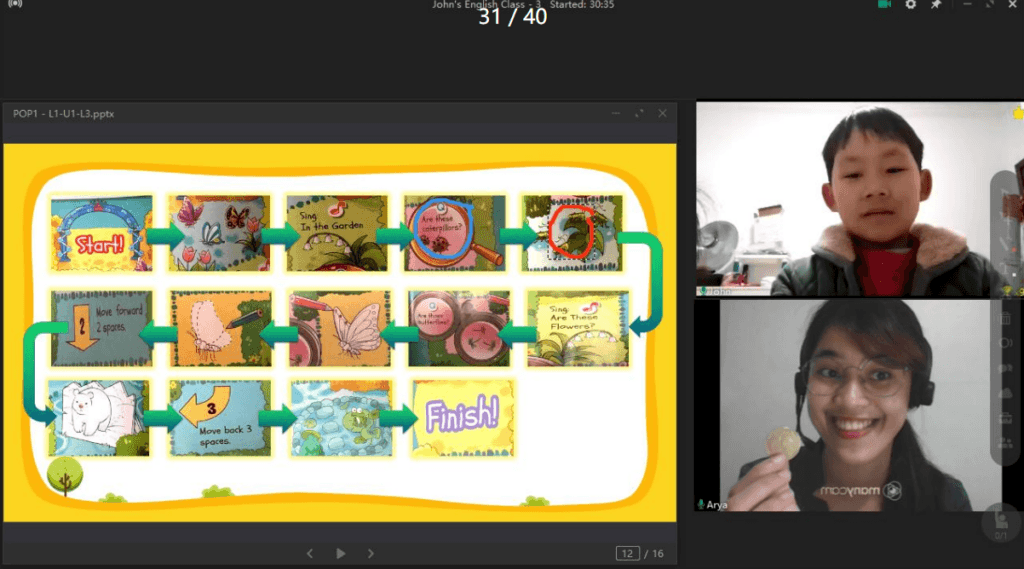Have you just completed your TEFL/TESOL certification and have jitters about teaching English for the first time? While the techniques you’ve learned have prepped you for teaching ESL effectively, knowing some tricks of the trade outside your course also helps you put your best foot forward! We’ve put together a list of tips for new TEFL teachers so that you can walk into the classroom (or log into a virtual one!) confidently and ready to win your students’ hearts and minds.
1. Build rapport from the start
Making your students comfortable and ready to participate in class starts by creating a good relationship with them right from the beginning. The more you show genuine interest in them and radiate positivity in class, the more confident your learners – even the shy ones – will be opening up to you!
Here are some ways to establish rapport with your English students:
- Incorporate fun ice breakers at the beginning of the class.
- Learn more about your learners’ lives outside of the classroom, and remember important details in your students’ lives, such as their birthdays and hobbies – writing them down helps!
- Tailor your classes to your students’ interests and goals.
- Boost your students’ confidence by praising them even for small victories like mastering a grammar concept.
- Don’t forget to smile!
Learn more ways for building rapport with your English students quickly.
2. Prepare, prepare, prepare
Whether you are teaching in person or virtually, preparation is key to avoiding nervousness and getting caught off guard in the middle of a lesson. After all, you wouldn’t want to spend precious class minutes looking for those videos that you wanted to use in a lesson!
- Organize your lessons, teaching materials, and evaluation tools like tests ahead of time.
- Allot some extra minutes to prep yourself before a class starts.
- Bookmark or save important apps, websites, and files that you’ll use in your online classes.

3. Be ready with a backup activity
Your students have finished all the exercises to practice the past simple tense and you have some time left. What will you do next?
Students’ learning pace differs a lot, and you’ll most probably encounter learners who can master a lesson faster than others. In case you finish earlier than expected, make sure to always have an extra activity in your back pocket. This could be a cool-down game, speaking activity, video comprehension exercise, or any time-fillers that you can use to make your students practice English before the class ends.
Get low-prep game ideas for teaching English online.
4. Review new grammar lessons beforehand
While it could be easy to say that you know how to use the perfect tenses and conditional forms very well, it may be different when you teach them, no matter how simple it seems, especially to those who are learning them for the first time!
From explaining structures to giving examples, your students most likely see you as a grammar expert, so ensure that you know a grammar lesson in detail before you teach it. This includes being familiar with exceptions to rules, providing useful practice exercises, and clarifying students’ doubts.
Teach grammar more effectively with these strategies.
5. Build a student-centered classroom
As an English teacher, you’ll want to make your students maximize the class time to practice and improve in the language. This means giving your learners the opportunity and space to get involved in activities and minimizing teacher talking time (TTT) in class.
Here are some ways you can apply this new TEFL teacher tip and boost student talking time (STT):
- Ask open-ended questions
- Get your learners talking through speaking activities or games
- Have students read instructions to class activities
- Make students do activities in pairs or groups
Check out more techniques for increasing STT in your ESL classes.

6. Be flexible and open-minded
One thing that makes teaching English fun is that you can work with learners from diverse countries and backgrounds. This means that you need to be adaptable and understanding of different cultures, learning styles, and personalities. Let your students feel that they can share their thoughts in class without being judged, and avoid taboo topics that can spark negative debates among students.
7. Attend professional development workshops
From bolstering class management skills to dealing with different types of learners, there are many aspects of English teaching that you can improve, and this is where professional workshops and TEFL/TESOL conferences come into play.
Many schools or companies offer teachers the chance to participate in workshops, training courses, or conferences like the IATEFL Conference and Expo and the TESOL Elevate Conference.
Alternatively, if you’re an independent English teacher, attending these events also helps you to upskill, expand your niche, and grow your business.
Learn more about professional development for ESL teachers.
8. Assign homework
Not everyone likes the idea of doing homework. However, when learning English, giving home-based tasks to your students is the way to go if you want to encourage them to practice the language outside of the classroom.
Remember, homework doesn’t just mean sending grammar worksheets and articles to read! You can make it more engaging by assigning students an interesting documentary or movie to watch, for instance, or a song to memorize and sing in the next class.

9. Put yourself in your students’ shoes
This is one of the most important tips for new TEFL teachers. There may be days when a student doesn’t understand certain vocabulary easily or feels frustrated about his or her speaking skills. In these cases, don’t panic! As a teacher, it’s essential to be patient and recognize where your learners’ difficulties are coming from. In most cases, you’ll have to find techniques to help a student understand a concept better. Some students learn in a structured way, for instance, while others comprehend certain topics best through hands-on examples.
Meanwhile, it’s not uncommon for students, especially adults, to feel tired after a long day at the office or if they’re going through something in life. Remember to show empathy towards your learners and, if necessary, adjust the level of difficulty of your lessons while they cope with their struggles.
10. Learn from experienced teachers
Having troubles with certain types of students? Not sure which app to use for teaching English online? You don’t have to deal with these problems alone!
If you have family or friends who teach English as well, don’t be afraid to reach out to them for help or advice. On the other hand, you can also join the online community of English teachers, such as the Bridge TEFL/TESOL Jobs Group or the Teaching English Online Group on Facebook.
11. Value your free time
While it’s great that you’re passionate about your craft, don’t forget to take some time off and practice self-care too! You can always allot some space in your schedule to practice your hobbies or relax to boost your mental health. Do you want to go surfing or do yoga in the morning before work? Don’t think twice and just go for it!
Additionally, remember that you don’t have to be available to your students 24/7. It helps if you establish your working hours and let your students know when they can contact you if they need any help. It’s also important to advise them of your holidays in advance and set automatic email replies if you’re out of the office for a few days.
Let this guide help you avoid burnout when teaching English online.
Getting into the field of English teaching offers a rewarding, diverse, and sometimes challenging experience. Aside from equipping yourself with the lessons you’ve obtained from your TEFL/TESOL course, apply the TEFL teaching tips above, and rest assured that you’ll do great once you start teaching ESL in the real world.









